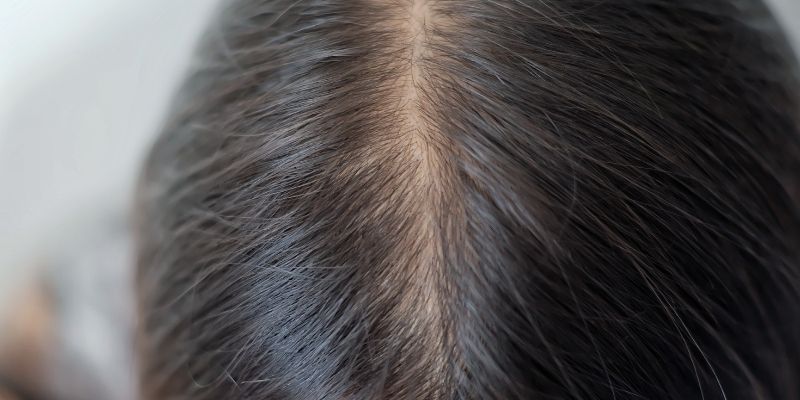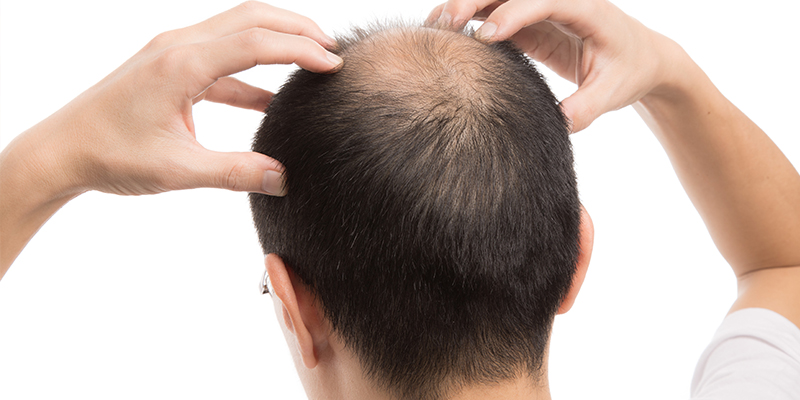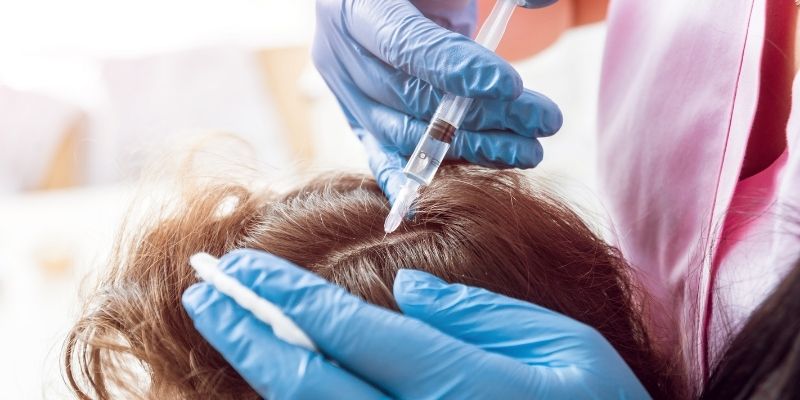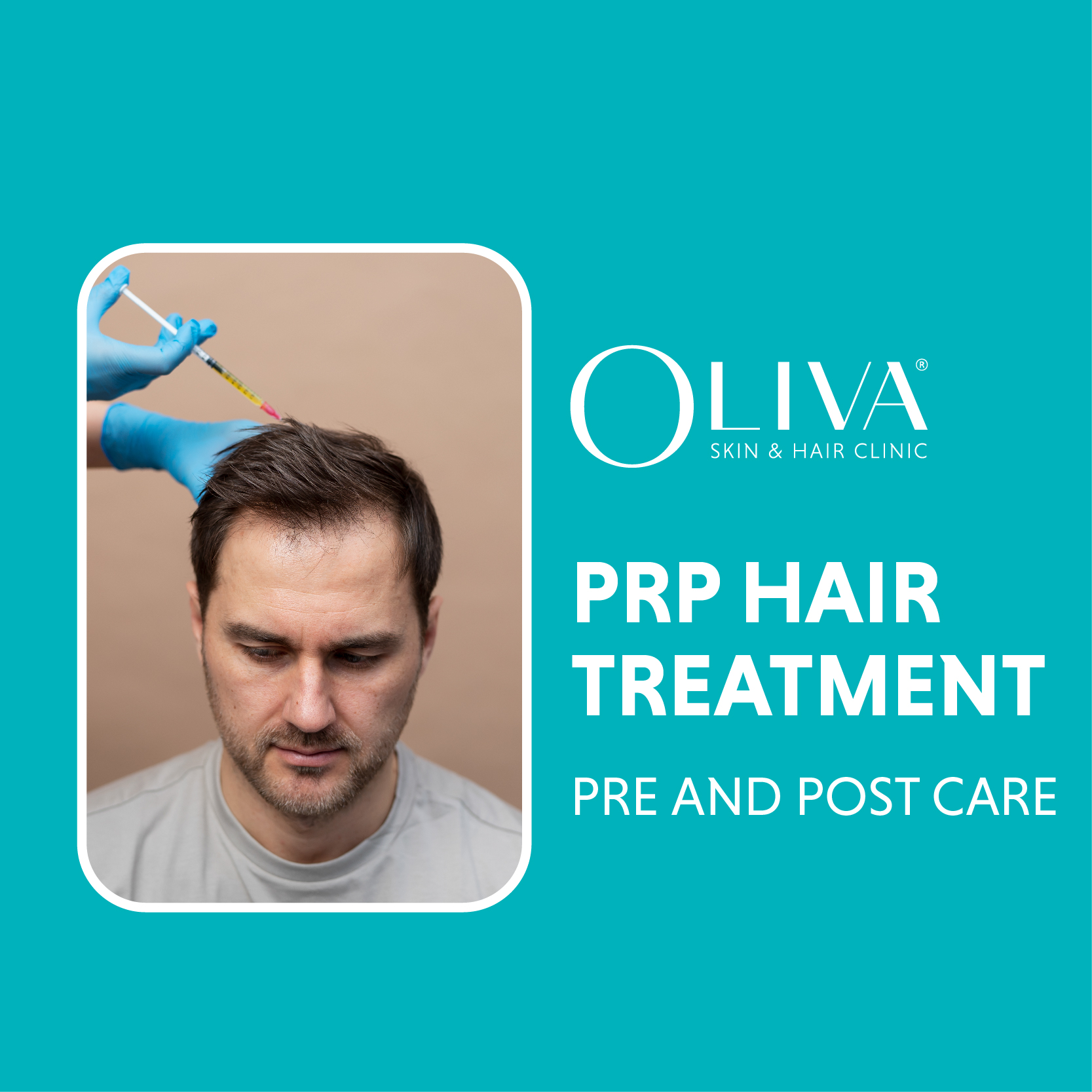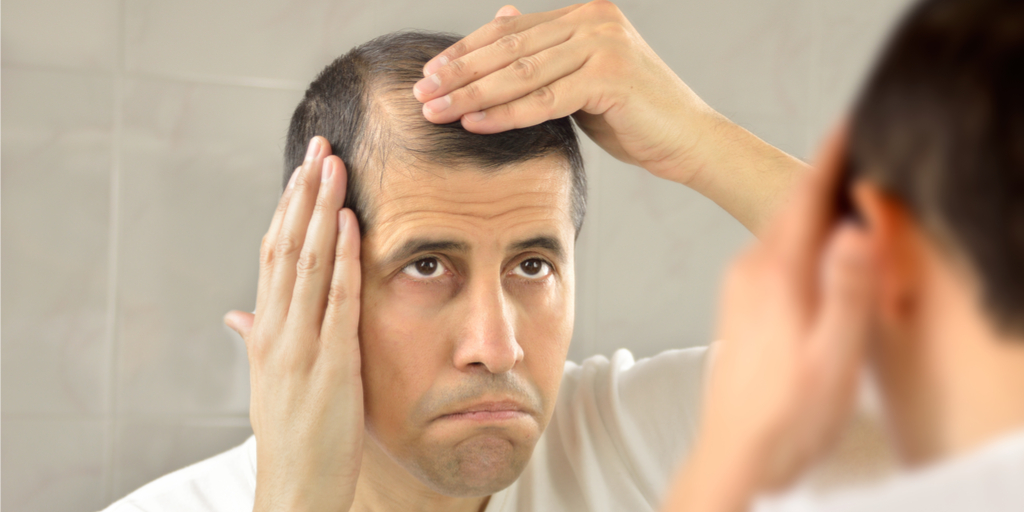Telogen Effluvium – Causes, Symptoms, Treatments and Prevention Tips
Telogen effluvium is one of the most common forms of hair loss. It occurs when the hair growth cycle gets disturbed and a large number of hair follicles on the scalp enter the telogen (resting) phase prematurely. This type of hair loss can affect men and women, though it may be more common in women. This article shall delve into details about what telogen effluvium is, what causes it, the symptoms are seen, and the measures that can be taken to treat and prevent it.
What Is Telogen Effluvium?
Our hair grows in a steady cycle of growth: they grow, rest, falls and then re-grow. A healthy scalp has about 85% of the hair follicles in the actively growing hair (anagen hair) phase and about 15% in the resting phase (telogen hair) (1). On average, each individual sheds 100 hair in a day, which is normal. In the case of telogen effluvium, more hair from the actively growing phase (anagen) enter the resting phase (telogen) and is shed abruptly. This hair loss condition may occur when some stress/trigger causes hair roots to push prematurely into the resting state.
Telogen effluvium can be acute or chronic. Acute telogen effluvium can last from 3-to 6 months, while chronic telogen effluvium (CTE) may persist for more than six months and it is predominantly observed in middle-aged women in the 40-50 age group (2).
What Causes Telogen Effluvium?
There are many factors that can push the hair from the Anagen phase to the Telogen phase to cause Telogen effluvium. These are given below –
- Stressful trigger event – Any physical trauma that the body experiences such as pregnancy, mental stress, surgery, accident, excessive blood loss, etc., can trigger Telogen effluvium. Such an event pushes the hair from the Anagen phase to the Telogen phase before they are supposed to enter the shedding phase. In a span of one to two months after the stressful event, one may notice hair thinning due to the increased hair fall.
- Diet – Changes in diet in the form of crash diets or a diet that lacks essential vitamins for healthy hair growth(namely iron, zinc, vitamin B6, and vitamin B12) can also affect hair growth. Insufficient nutrients can cause an imbalance in the hair growth cycle and increase hair fall.
- Disease – Infections like typhoid, malaria and any long-standing fevers are common causes of telogen effluvium. Any disorder or condition that leads to a hormonal imbalance such as hyperthyroidism or hypothyroidism can cause hair fall and may lead to hair thinning in the form of Telogen effluvium. Chronic systematic diseases or inflammatory disorders can also cause this type of hair loss. A few examples of such diseases are a hepatic failure, psoriasis, inflammatory bowel disorder, and contact dermatitis.
- Medications – Certain medications like antihypertensives, antidepressants, and oral contraceptives can also cause Telogen effluvium. An individual must observe the changes made to the medications and speak to the doctor if medications are causing the increased hair loss.
Must Read: Hair Loss Treatment
What Are The Symptoms Of Telogen Effluvium?
An increase in hair fall that is much beyond the usual levels is the primary symptom of telogen effluvium. Usually, patients do not notice the impact until hair thinning is evident. A hair pull test can indicate if a patient’s scalp is affected by telogen effluvium. When 40-60 closely grouped scalp hair are pulled, a positive result (10% of hair is easily pulled out from any part of the scalp) means the patient shows symptoms of TE (3).
Telogen Effluvium Treatments & Hair Regrowth
When it comes to treating Telogen effluvium, depending on the underlying factor, you can opt for different methods to restore your hair growth.
- When the hair loss is due to medications, you can speak to your doctor so that he/she can prescribe you alternatives that will not cause further hair loss.
- When it is due to the absence of certain nutrients in your diet, a healthy diet can be followed. A certified dietitian can help you in planning your diet chart for healthy hair growth.
- Disorders and conditions that lead to telogen effluvium need to be treated first, and once they are treated, your hair growth cycle will return to normal.
Telogen effluvium regrowth of hair can also be achieved by opting for PRP (Platelet Rich Plasma) therapy at a reputed hair clinic. This is a safe and non-invasive treatment where blood from the patient’s own body is extracted and put into a centrifuge to separate growth factor rich platelets. This platelet which is rich in proteins is injected back into the scanty areas of hair growth on the scalp via microneedles. This treatment helps to supply the affected hair follicles with essential growth factors present in the blood platelets.
Must Read: What Is PRP Treatment – Cost, Side Effects & Results?
How To Prevent Telogen Effluvium?
Since the triggers for this type of hair loss are usually sudden shock or stress internal or external to the body, it is difficult to prevent Telogen effluvium. However, a few measures can be taken to reverse the condition:
- Eat a healthy diet that is rich in protein and essential nutrients like iron and vitamin B complex.
- Address the psychosocial impact, if any. You can opt for a healthy living routine and exercise to heal yourself.
- Speak to the dermatologist and seek medical advice.
Difference Between Telogen Effluvium And Anagen Effluvium?
Both Anagen effluvium and Telogen effluvium are types of hair loss that are reversible. In Anagen effluvium, large chunks of hair fall out drastically and rapidly. A common example of this is hair loss due to chemotherapy. While in Telogen effluvium, the hair loss is not so drastic and does not lead to partial (or even complete) balding as seen in Anagen effluvium.
General Tips For Recovery
- Eat a Healthy and Nutritious Diet: Intake of adequate vitamins, minerals and other essential nutrients means the healthy function of our body including a healthy hair growth cycle. So, it is important to make the right changes to the diet and be mindful of what we consume reflects in the way our body reacts.
- Get Enough Sleep – The cells in the body, including those on the scalp, rejuvenate and replenish themselves when we sleep. Getting enough sleep, six to eight hours every night will help the hair cells to function optimally. Also, lack of sleep can create a hormonal imbalance in the body, and this can increase hair loss. Hence, it is even more important to sleep enough amount of time every day.
- Practice Stress Management – Stress releases hormones that can affect the overall healthy functioning of the body, including the hair growth cycle. If we cannot control the events that cause stress, we can learn to manage how we react to them. Practice simple techniques such as yoga, meditation, or just walk outside in fresh air for 20-30 minutes. You can even read a book to take your mind off things and relax.
- Keep Hormones In Balance – If hormonal imbalance is the reason for your Telogen effluvium hair loss, speak to a doctor or a dermatologist to understand the condition and its treatment. A doctor can prescribe you the required medication and ways to treat hormonal imbalance.
Must Read: How To Prevent Hair Loss Effectively?
Telogen effluvium hair loss can be hardly noticeable initially, but over a few months, hair thinning becomes prominent. It is usually a self-limiting hair loss condition and may last up to 3-6 months, however, if the condition is chronic it may still persist for more than 6 months. The most important aspect of managing the condition is to educate the patient and understand their trigger event. The patient should seek expert advice in the analysis and control of telogen effluvium.
Our certified subject matter experts do extensive research and collate facts from reputed scientific journals and international studies to create informative and engaging articles related to all your dermatology concerns. They strive to help you decipher medical jargon, distinguish fact from fiction and overcome paranoia. Our qualified medical board or expert panel goes a step further to verify these facts based on their rich academic knowledge, vast clinical experience and critical industry insights to ensure you consume only medically accurate content that empowers you to make informed decisions about your hair and skin-care treatments and weight management. Check out our Editorial policy for further details
https://dermnetnz.org/topics/telogen-effluviumhttps://www.ncbi.nlm.nih.gov/pmc/articles/PMC4606321/






